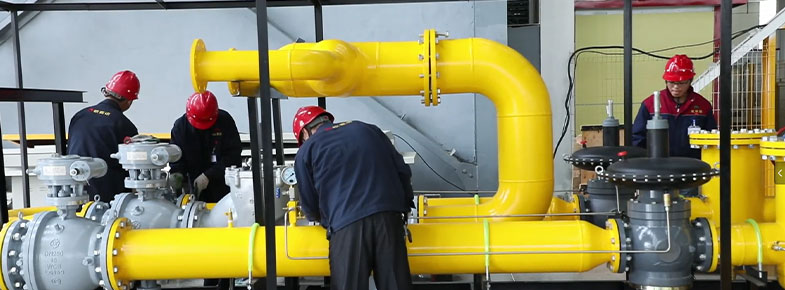
8 月 . 14, 2024 02:03
Back to list
Understanding the Functionality and Applications of Electric Regulating Valves in Modern Systems
Understanding Electric Regulating Valves A Key Component in Automation
Electric regulating valves play a crucial role in various industrial processes by controlling the flow, pressure, and temperature of fluids within a system. These valves are essential components in sectors such as oil and gas, water treatment, chemical processing, and HVAC systems. Understanding their function, benefits, and applications is key to appreciating their importance in modern automation.
What Is an Electric Regulating Valve?
An electric regulating valve is a type of control valve that utilizes an electric actuator to adjust its position depending on a specific signal from a control system. This adjustment changes the flow rate of the fluid passing through it, thereby regulating the process variables such as pressure, temperature, and flow rate. Generally designed for precise control, these valves can handle a variety of fluids, including gases and corrosive liquids.
Components of Electric Regulating Valves
The electric regulating valve typically consists of three main components the valve body, the actuator, and the control system.
1. Valve Body This is the part of the valve that actually obstructs and regulates the flow. Different types of valve bodies, such as globe, ball, and butterfly designs, can be used depending on the application requirements. 2. Actuator The electric actuator is responsible for converting electrical energy into mechanical movement, thus adjusting the valve position. Electric actuators can be either linear or rotary, depending on the valve design. They offer high precision and faster response times compared to pneumatic or hydraulic actuators.
3. Control System This system sends signals to the actuator based on the feedback it receives from sensors monitoring the process. Advanced control algorithms can optimize the response further, enhancing overall system efficiency.
Benefits of Electric Regulating Valves
electric regulating valve

Electric regulating valves offer several advantages that make them preferable in many applications.
1. Precision Control These valves provide fine control over flow and pressure, which is critical for sensitive processes. This precision helps in maintaining product quality and safety.
2. Energy Efficiency Electric actuators typically consume less power compared to pneumatic systems, which require compressed air. This energy efficiency leads to cost savings over time.
3. Low Maintenance Electric valves are generally easier to maintain than their pneumatic counterparts since they have fewer moving parts and do not require air supply systems.
4. Remote Operation With the integration of digital controls, electric regulating valves can be operated remotely, making them ideal for monitoring and managing processes in hazardous or hard-to-reach locations.
Applications of Electric Regulating Valves
Electric regulating valves are widely used across various industries. In the oil and gas sector, they control the flow of hydrocarbons, ensuring safe and efficient operations. In HVAC systems, they regulate the supply of air or water, contributing to energy savings and comfort. In chemical processing, they monitor and control reactions, ensuring that processes stay within safe operational limits.
Conclusion
Electric regulating valves are integral to the automation of modern industrial processes. Their ability to provide precise control, energy efficiency, and ease of maintenance makes them a preferred choice for many applications. As industries continue to evolve, the role of these valves will undoubtedly expand, enhancing process efficiencies and contributing to sustainability efforts across the globe. Understanding and implementing electric regulating valves can lead to significant improvements in operational performance and reliability.
Latest news
-
Unlocking The Quality Gas Pressure ReducersNewsNov.01,2024
-
The Role of Gas Pressure Reducing StationsNewsNov.01,2024
-
The Importance and Functionality of Safety Relief ValvesNewsNov.01,2024
-
The Essential Role of Safety Valves in Natural Gas ApplicationsNewsNov.01,2024
-
The Essential Role of Gas Pressure RegulatorsNewsNov.01,2024
-
Enhance Your Premium Gas FiltersNewsNov.01,2024

